Today Current Affairs: 14th December 2022 for UPSC IAS exams, State PSC exams, SSC CGL, State SSC, RRB, Railways, Banking Exam & IBPS, etc
Table of Contents
Zonal Cultural Centres:
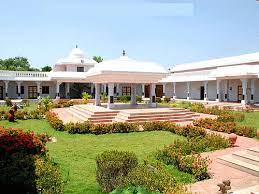
The Union Culture Ministry has set up seven Zonal Cultural Centres (ZCCs) across the country for conservation and development of art, culture and crafts across the country.
- Zonal Cultural Centres (ZCCs) have been set up at Patiala, Nagpur, Udaipur, Prayagraj, Kolkata, Dimapur, and Thanjavur.
- Government of India has provided annual grant-in-aid to conduct art programmes at these centres.
- The ministry also organises Rashtriya Sanskriti Mahotsavs (RSMs) through these ZCCs where a large number of artistes from all over India are engaged to showcase their talents.
- These ZCCs also organise a minimum 42 Regional Festivals for promotion of art and culture every year as per their programme calendar.
- For proper storage of the treasure of knowledge for posterity, several art forms including the vanishing ones are being documented by these ZCCs.
- Number of arts forms have been documented in digital format (both audio and video formats).
- Further, for preservation and promotion of various folk arts & culture of the country, these ZCCs also implement a number of schemes viz. Award to Young Talented Artists, Guru Shishya Parampara, Theatre Rejuvenation, Research and Documentation, Shilpgram, OCTAVE and National Cultural Exchange Programme.
Sri Aurobindo Ghosh 150th Birth Anniversary:
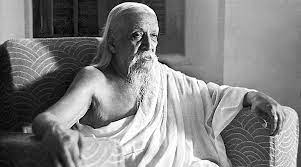
Prime Minister Narendra Modi will participate in a programme commemorating Sri Aurobindo’s 150th birth anniversary on December 13, 2022. During the Programme PM will release a commemorative coin and postal stamp in honour of Sri Aurobindo.
- Sri Aurobindo Ghosh Born to surgeon Krishna Dhan Ghose and Swarnalata Devi in Calcutta on August 15, 1872.
- He passed Indian Civil Service Examination in 1890 but failed in the horsemanship test due to which he could not enter the service.
- In 1893, he accepted an appointment in the Baroda state service.
- He became a leading figure in the freedom movement and used to write fearless articles for the English newspaper Bande Mataram.
- He also contributed articles to the Bengali weekly Yugantar.
- Later, he started the weekly English journal titled Dharma, in which he tried to convey the message of Swaraj or freedom from the British rule.
- He was one of the founders of the youth club Anushilan Samiti which protested against the atrocities of the British government.
- He was one of the leading protesters against the 1905 Partition of Bengal and called on the citizens to boycott British institutions and goods.
- He took part in the 1906 session of the Indian National Congress and was a member of the team which set four objectives-Swadeshi, Swaraj, education and boycott.
- He was charged in the Alipore Bomb Case (1906-1910) and was sentenced to jail.
- He spent one year in solitary confinement at the Alipore Central Jail in Calcutta.
- He decided to give up active politics after his stint in jail and devoted himself to spiritualism.
- In 1910, he left British India and found refuge in the French colony of Pondichéry (now called ‘Puducherry’) in southeastern India.
- He founded a community of spiritual seekers, which took shape as the Sri Aurobindo Ashram in 1926.
- He devoted himself for the rest of his life to the development of his “integral” yoga.
- The main objective of his teachings was to increase the level of consciousness of people and to aware people of their true selves.
- Aurobindo’s voluminous literary work comprises philosophical speculation, many treatises on yoga and integral yoga, poetry, plays, and other writings.
India International Science Festival 2022:
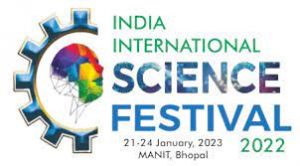
8th edition of India International Science Festival will be held in Bhopal
India International Science Festival:
- It was first held in Delhi in 2015.
- Over all six editions of IISF have been organized since then in northern, southern and the eastern regions of the country.
- It is an initiative of Ministry of Science and Technology and Ministry of Earth Science of Government of India in association with Vijnana Bharati
- Aim: To show the ways how science, technology, engineering and mathematics (STEM) provide us with the solutions to improve our lives.
- It is a science movement with Swadeshi spirit lead by eminent scientists of the country.
Dare To Dream Contest:
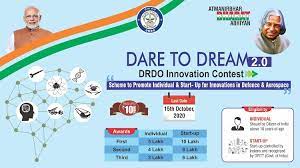
A total of 5,637 applications have been received under three Dare to Dream Contests to promote individual and start-ups for innovation in the area of defence and aerospace in last three years.
- Dare to Dream Contest was initiated in memory of the former President of India, Dr APJ Abdul Kalam.
- Defence Research and Development Organisation (DRDO) provides a unique opportunity for start-ups and innovators to solve some key challenges in emerging technologies that can help boost India’s defence & aerospace capabilities.
- DRDO has been launching this Contest every year since 2019 to bring together innovators, entrepreneurs, individuals above 18 years and start-ups.
- Dare to Dream 2.0 and Dare to Dream 3.0 were launched in 2020 and 2021, respectively.
- The selection criteria for evaluation of the entries are completeness of proposal, scientific soundness, design completeness, merit, technological readiness level achieved and innovation.
Scheme For Providing Quality Education To Madrasas/Minorities:
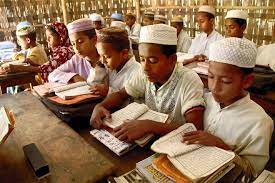
The Parliamentary Standing Committee on Social Justice and Empowerment has enquired with the Union Government for the delay in approving the continuation of the Scheme for Providing Education to Madrasas/Minorities (SPEMM).
- SPEMM seeks to provide financial assistance to madrasas and minority institutes.
- Implementing Agency: The Department of School Education and Literacy under the Ministry of Education.
- Sub-Schemes:
- Scheme for Providing Quality Education in Madrasas (SPQEM): It seeks to bring about qualitative improvement in Madrasas to enable Muslim children attain standards of the National education system in formal education subjects.
- Infrastructure Development of Minority Institutes (IDMI): It has been operationalised to augment Infrastructure in Private Aided/Unaided Minority Schools/Institutions in order to enhance the quality of education to minority children.
- Features:
- SPQEM:
- To provide financial assistance to traditional institutions to encourage them to introduce Science, Mathematics, Social Studies, Hindi and English in their curriculum to attain proficiency.
- To strengthen State Madrasa Boards opting for assistance by enabling them to monitor the Madrasa modernization programme.
- To provide quality components in Madrasas such as remedial teaching, assessment and enhancement of learning outcomes, Rashtriya Avishkar Abhiyan etc.
- IDMI:
- To encourage educational facilities for girls, children with special needs and those who are most deprived educationally amongst the minorities.
- SPQEM:
17th Asia Pacific Regional Meeting:
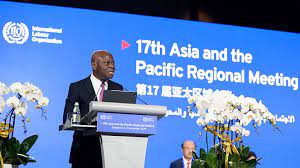
The 17th Asia Pacific Regional Meeting (APRM) of the International Labour Organization (ILO) was held in Singapore.
Highlights of the Meeting:
- It brings together representatives of governments, employers’ and workers’ organizations from Asia, the Pacific and the Arab states.
- The four key thematic areas of the 17th APRM included:
- Integrated policy agenda for a human-centred recovery that is inclusive, sustainable and resilient
- Institutional framework to support transitions towards formality and decent work
- Strong foundations for social and employment protection and resilience
- Revitalizing productivity growth and skills for more and better jobs
- The meeting concluded with the launch of ‘Singapore Statement’.
- The statement represents a shared vision of the region’s priorities for national action among the ILO constituents and with ILO support in the coming years.
- The statement highlights the need to ratify ILO fundamental conventions and further strengthen the capacities of government, employer and worker representatives to carry out effective social dialogue.
- It calls for action to close gender gaps and encourages ILO member countries to consider the ratification and effective implementation of related international labour standards, accelerate the transition from the informal to formal economy as well as strengthen governance frameworks to protect the rights of migrant workers.
- The Statement furthermore confirms the commitment of governments and social partners across the regions to engage in consultations towards the development of a Global Social Justice Coalition.
- It also calls for a just transition that helps build environmentally sustainable economies and societies in the face of climate change
What Are Undertrials?
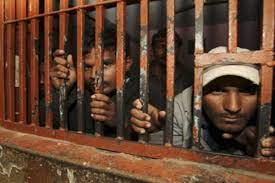
The Indian President has raised the issue of the plight of a large number of undertrials holed up in the prisons.
- An undertrial is a person who is currently on trial or who is imprisoned on remand whilst awaiting trial or a person who is on a trial in a court of law.
- The 78th Report of Law Commission also includes a person who is in judicial custody on remand during investigation in the definition of an ‘undertrial’.
- As per NCRB (National Crime Report Bureau), over the last 10 years, the number of undertrials in jails has risen constantly and peaked in 2021.
- In 2020, about 76% of all prison inmates in the country were undertrials, of which about 68% were either illiterate or school dropouts.
- Delhi and Jammu and Kashmir (J&K) were found to have the highest ratio of undertrials in jails at 91%, followed by Bihar and Punjab at 85%, and Odisha at 83%.
- About 27% of all undertrials were found to be illiterate, and 41% had dropped out before Class X.
National Policy Of Rare Diseases:
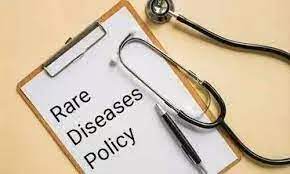
A Rajya Sabha Member of Parliament (MP) raised concerns over National Policy of Rare Diseases (NPRD) as it did not reach any patient with rare diseases even after several months since its introduction.
- Ministry of Health and Family Welfare formulated launched NPRD in 2021 for the treatment of rare disease patients.
- Aim:
- To increase focus on indigenous research and local production of medicines.
- To lower the cost of treatment of rare diseases.
- To screen and detect rare diseases early at early stages, which will in turn help in their prevention.
Key Provisions of the Policy:
- Group 1: Disorders amenable to one-time curative treatment.
- Group 2: Those requiring long term or lifelong treatment.
- Group 3: Diseases for which definitive treatment is available but challenges are to make optimal patient selection for benefit, very high cost and lifelong therapy.
- Those who are suffering from rare diseases listed under Group 1 will have the financial support of up to Rs. 20 lakh under the umbrella scheme of Rashtriya Arogya Nidhi.
- Rashtriya Arogya Nidhi provides for financial assistance to patients, living Below Poverty Line (BPL) and who are suffering from major life-threatening diseases, to receive medical treatment at any of the super specialty Government hospitals / institutes.
- Beneficiaries for such financial assistance would not be limited to BPL families, but extended to about 40% of the population, who are eligible as per norms of Pradhan Mantri Jan Arogya Yojana, for their treatment in Government tertiary hospitals only.
- Alternate Funding: This includes voluntary crowdfunding treatment by setting up a digital platform for voluntary individual contribution and corporate donors to voluntarily contribute to the treatment cost of patients of rare diseases.
- The policy aims to strengthen tertiary health care facilities for prevention and treatment of rare diseases through designating eight health facilities as ‘Centres of Excellence’ and these will also be provided one-time financial support of up to Rs. 5 crore for upgradation of diagnostics facilities.
Environment Education, Awareness And Training (EEAT):
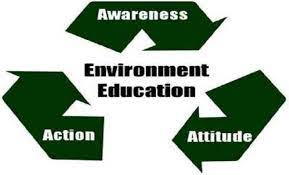
Environment Education scheme has been revamped into Environment Education Programme.
- Environment Education, Awareness and Training (EEAT) is a Central Sector scheme implemented by Ministry of Environment, Forest and Climate Change .
- Objective: To promote environmental awareness and mobilize students’ participation for environment conservation.
- Under this Scheme there are two major programmes namely Green Corps (NGC) Programme and National Nature Camping Programme (NNCP)
Green Corps (NGC) Programme:
- Under this scheme more than 1 lakh Eco-clubs have been formed in schools and colleges to educate students and to spread awareness on environmental
- A financial assistance of Rs 5,000/- per Eco-club used to be provided under this programme with a ceiling of 500 school Eco-clubs per district and 100 college Eco-clubs per State.
National Nature Camping Programme (NNCP):
- Under this scheme ,organization of field visits/ nature camps in different Protected Areas/ Nature Parks/ Tiger Reserves of the country for students were supported.




